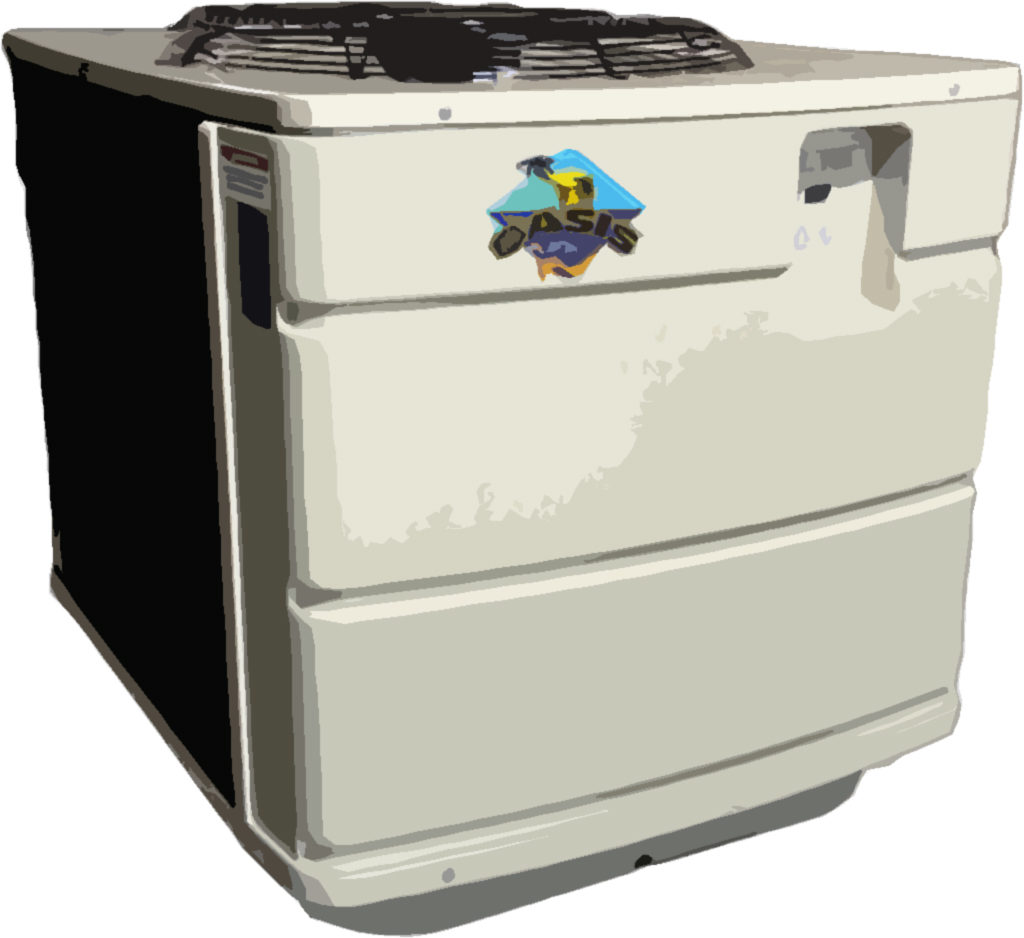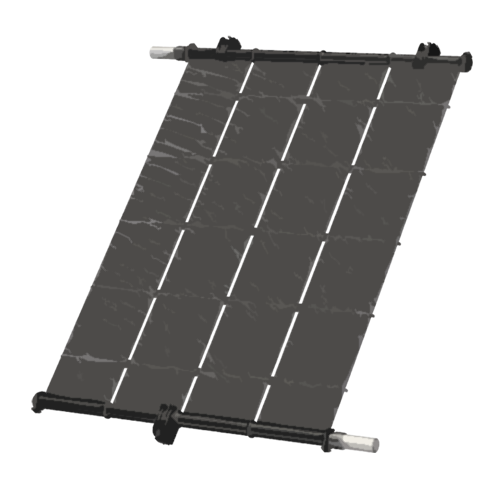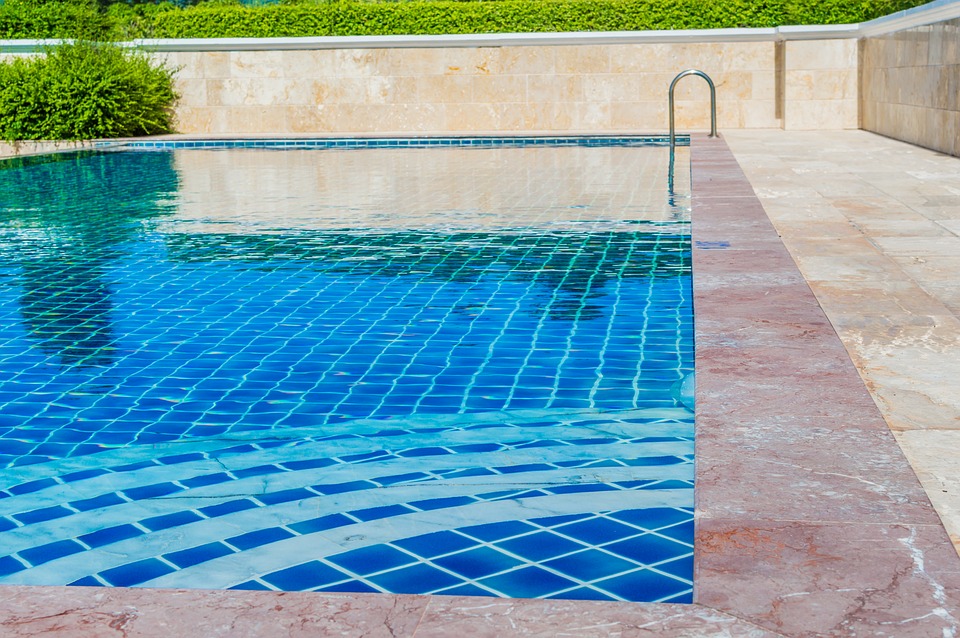Can’t decide on a pool heating option. Trying to answer the timeless question of pool heat pumps vs solar pool heaters?
This is the post for you — keep reading
Pool Heat Pumps vs Solar Pool Heaters | Which one do I pick?
Right away, we’re going to tell you that there isn’t a definitive answer to this question. And it’s not that we don’t want to give you one because let’s face it, as pool heat pump professionals, we could easily slant this entire post in our favor. But that wouldn’t really contribute to your pool heating knowledge, and it certainly wouldn’t give you enough info to achieve a full understanding.
And that’s because when it comes to pool heat pumps vs solar pool heaters, determining which one is best for you depends on a few factors. From the size of your pool and how often you swim to your personal heating budget and where you live. All of which we discuss in this post.
We’ll also be talking about how each pool heater works and the unique benefits that come with each one. That way, you can make a knowledgeable decision about which pool heating option is best for you.
Pool Heat Pumps vs Solar Pool Heaters
Pool Heat Pumps



If you live anywhere even mildly warm, then you’ve probably heard about pool heat pumps before. And it’s no surprise — they’re one of the most energy efficient pool heating solutions available to pool owners. And compared to gas and electric pool heaters, they’re exceptionally affordable. But how exactly do they work, and what makes them so energy efficient?
How They Work
First off, pool heat pumps don’t actually create heat.
“Wait, what?”
It’s true — pool heat pumps in no way use electricity to directly create heat (unlike electric resistance pool heaters). Sure, they still use electricity, but minimally, and in a very different way. Pool heat pumps harvest natural heat straight from mother nature. Confused? Here’s a quick summary of the process:
Starting off, the heater uses a small amount of energy to spin a fan. As the fan spins, it pulls natural warm air from the atmosphere into the unit through a special part called an evaporator coil. The evaporator coil is essentially a long series of tubes filled with eco-safe refrigerant. When the warm air combines with the refrigerant, chemistry occurs, and a warm gas is produced. From there, the gas is pumped to the heater’s compressor, where it’s compressed into a hot gas. This is how heat is generated.
Next, the hot gas travels to the heat exchanger, a part comprised of two core components: a hose, and an inner titanium tube that runs through the center of it. The hot gas heats the titanium tubing as it flows through. At the same time, water travels through the main hose and passes over the hot tubing, gradually warming up. As the water continues flowing, it eventually makes it way out of the heater and back into your pool. Then the cycle starts back up again.
[For more on this, check out: How Do Air-Source Pool Heat Pumps Work]
Trying to size a pool heat pump? Check out our pool heat pump sizing page
Advantages
Since pool heat pumps use electricity in small increments, it’s easy to understand why they have such great energy efficiency. But let’s take a look at all the advantages as a whole:
- Pool heat pumps can run without sunlight down to 50 degrees Fahrenheit. So rain or shine, summer or fall, you still enjoy warm comfortable water
- They’re eco-safe and don’t produce any harmful emissions (unlike gas pool heaters)
- They have one of the lowest monthly operation costs, next to gas and electric pool heaters
- They’re highly durable and can last twice as long as other pool heater types with good routine maintenance
Disadvantages
- They’re won’t operate efficiently under 50 degrees (limited by temperature)
- In colder climates, they cannot provide year-round heating
- They require a dedicated electrical connection/breaker
- They take longer to heat up your pool than electric or gas pool heaters (especially if you have a larger sized pool)
Pool Heat Pump Cost
Pricing for these energy efficient heaters, including installation, typically ranges from $2,000 – $4,000.
Ideal for: small to large sized backyard pools
Solar Pool Heaters


 Solar pool heaters are especially popular in the sunnier states and come in a few different styles. But the most common setup is a series of polypropylene mats laid across a rooftop, with an inlet and outlet pipe along opposite sides. Their ability to produce heat without using electricity (aside from the power needed to run the pool pump) stands as one of their best features. But let’s dive a bit deeper into how these pool heaters work:
Solar pool heaters are especially popular in the sunnier states and come in a few different styles. But the most common setup is a series of polypropylene mats laid across a rooftop, with an inlet and outlet pipe along opposite sides. Their ability to produce heat without using electricity (aside from the power needed to run the pool pump) stands as one of their best features. But let’s dive a bit deeper into how these pool heaters work:
How They Work
The heating process for solar pool heaters is about as simple and straightforward as it comes. It all starts when your pool pump begins pumping water. As the water flows through the pipes and past the filter, it makes it’s way to the roof. The mats on the roof collect heat throughout the day — solar heat that’s gradually distributed as water flows through the rooftop pipes. From there, the water flows down the outlet pipe and makes it way back into the pool. Then, the process restarts.
Advantages
- As long as the sun is shining, solar heaters can generate heat for your water
- With no harmful emissions, solar heaters are also an eco-friendly pool heating option
- Once installed, they’re fairly low maintenance
- They only require the power of your pool pump
Disadvantages
- Without the sun, solar heaters do not work at all
- Of all pool heater types, solar heaters have the slowest heating time
- As photovoltaic heaters, they can only use the heat that they’ve harvested until it’s gone (then they have to recharge). Therefore, solar pool heaters cannot provide consistent heat on demand like other pool heaters
- Solar pool heaters are typically unattractive in design and difficult to relocate
Solar Pool Heater Cost
The price for these heaters, including installation, typically ranges from, $3000 – $8000.
Ideal for: small to medium sized backyard pools



Pool Heat Pumps vs Solar Pool Heaters | Which pool heater is best for my pool?
Now that you know how the two heaters work, and what benefits come with each, answering this question is easy.
If you live in a location that’s typically warm year round and like to swim often, a pool heat pump can provide all of the heat you need. Since they’re not dependent on the sun, you won’t have to worry about clouds, rain, or the night time.
But if you don’t swim too often and live in a sunny location, a solar pool heater can be a great alternative. They’ll provide plenty of heat for you while keeping your electricity bill low. But, it’s still important to remember that solar heaters are entirely dependent on the sunshine, and even with it, they still can’t provide the level of consistent heat that electric, gas, and pool heat pump heaters do.
Hence why many pool owners go with this third option: using a solar pool heater and pool heat pump together
It’s no so much about “pool heat pumps vs solar pool heaters”, but rather pool heat pumps AND solar pool heaters. Together, the combination allows pool owners to get the best of both worlds. On sunny days, the solar pool heater provides solar powered heating, keeping energy use low. And on colder or cloudy days (or at night), the pool heat pump subs in and efficiently heats your water. But the best part about this combination is the fact that you actually use your heat pump less. And this is because there’s already warm water from the solar heater flowing through it, which allows the pool heat pump to reach the target temperature much faster than it normally would, all while minimizing energy use.
[Read more about using this powerful combination here: Pool Heat Pumps vs Solar Pool Heater: The Perfect Match]
Closing thoughts
So there you have it, pool heat pumps vs solar pool heaters, demystified. Hopefully, this post makes it easier to decide which pool heater is best for you. Each one comes with its own advantages, but what matters most is choosing the heater that suits your location and lifestyle best. If you swim often and like to regardless of weather or time of day, then a pool heat pump is always a reliable option. But if you mostly just swim here and there on those hot and sunny days, then a solar heater is a great alternative. Of course, nothing beats the power of these two eco-friendly pool heating options working together.
Have a few questions about your pool? Check out our Pool Owner Guide
Want to make pool maintenance a breeze? This Pool Care Schedule is the secret to doing just that


